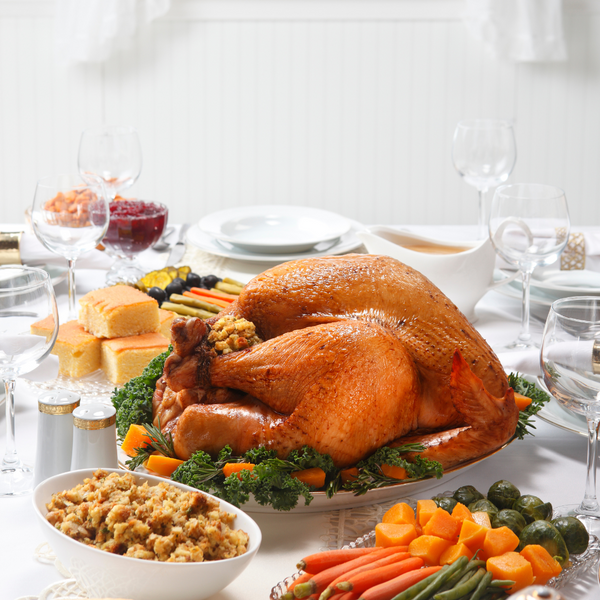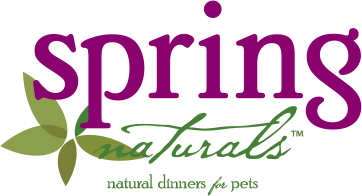
Can My Dog Eat That?
Because the holidays are fast approaching, it is best to inform yourself ahead of time about what your dog can and cannot eat from the delicacies you will prepare.
We all know dogs are greedy and famous beggars when it is family dinner time. Not all traditional foods that we eat during the holidays (as well as in everyday life) are healthy for dogs – some can cause gastrointestinal disorders, allergies, and even the death of your pet. For these reasons, it is best to be informed about what is and what is not allowed from the dinner table.
Foods Your Dog Is NOT Allowed to Eat During The Holidays
- Steak or Pork Sausages
Steak and sausages contain a lot of fat. Dogs should not eat a lot of fat because they risk developing pancreatitis. Because of this, it is advisable to avoid fatty meats. In addition, sausages can contain a lot of salt and sulfite preservatives, which can lead to vitamin B1 (thiamine) deficiency and death.
- Bones
Cooked bones are not very healthy because they can shatter and perforate your dog's digestive tract. They can also cause intestinal obstruction. Both scenarios can be fatal for your dog.
- Onion, Chives, Leek, Shallots, and Garlic
Although these ingredients make our recipes even more delicious, dogs are not allowed to eat them because they are toxic. These foods contain thiosulfate, a chemical compound that causes hemolytic anemia and methemoglobinemia in pets. Clinical signs of intoxication with these foods may include lethargy, wobbly walking, panting, rapid heart rate, pale gums, vomiting, or bloody urine. If these signs occur, take your dog to the vet immediately.
- Chocolate (Caffeine)
If your pet consumes chocolate, they risk several side effects. These include diarrhea, vomiting, hyperthermia, and shivering. Chocolate is toxic to dogs because it contains two toxic compounds: theobromine and caffeine (in low concentrations). Humans metabolize theobromine easily but dogs process it slowly, like caffeine. Processing these compounds slowly allows them to build up in your dog’s system and cause clinical signs associated with chocolate toxicity.
Both theobromine and caffeine can cause the following clinical signs: vomiting, diarrhea, restlessness, increased urination, tremors, rapid heart rate, seizures. In more severe cases, your dog can no longer move or will die.
- Grapes and Raisins
All types of grapes and raisins are toxic to dogs, as well as all the products that contain these ingredients.
There is no established toxic dose, but there are dogs that are more sensitive to these fruits. Some dogs are tolerant to small doses while others can become intoxicated just by eating a few grapes or raisins.
Grapes and raisins can cause urinary problems. Common clinical signs include vomiting (which usually occurs in 24 hours post-ingestion), low energy level, lack of appetite, and diarrhea (occurs 24-48 hours post-ingestion).
Kidney damage begins to show after 48 hours, and clinical signs may include lack of appetite, ammonia-smelling breath, diarrhea, abdominal pain, vomiting, thirst, and excessive urination. Dogs can even go into a coma because of the toxins that accumulate in their blood. Once the kidneys are affected, your dog's prognosis is poor. For all these reasons, it is recommended not to feed your dog grapes or raisins. If accidental ingestion has occurred, contact your veterinarian immediately.
- Macadamia Nuts
Macadamia nuts and other potentially toxic nuts are found in many households and may be unknowingly fed as treats. The best way to prevent accidental ingestion is to avoid these nuts altogether.
The mechanism by which macadamia nuts are toxic to dogs is unknown. These nuts are found in all kinds of recipes (especially sweets) and as whole nuts. The sensitivity to these nuts varies depending on the individual and how many nuts they consumed.
Clinical signs usually occur within 12 hours of ingestion and will resolve in about 48 hours. If your dog ingests small amounts, you may only see vomiting and abdominal pain. Other clinical signs may include lethargy, wobbly walking, hind limb weakness, and fever. Increased heart rate, increased respiratory rates, and pale mucous membranes may also be observed when dogs ingest large quantities of macadamia nuts.
Furthermore, some dogs can be sensitive and develop allergic reactions (as happens in humans) even from nuts that are apparently safe for them. Therefore, it is good to avoid feeding your dog nuts altogether. If an accidental ingestion occurs, do call your vet.
- Dairy Products
Although dogs can consume milk or other dairy products, it can harm them. The breakdown of lactose requires a specific enzyme called lactase. This enzyme will break down the lactose into its basic parts.
Lactase production, however, is not common in dogs and is not a biological characteristic that can be relied upon. Not only do they produce less lactase as they become adults, but there are also dogs that do not produce it at all, being lactose intolerant.
If you do not want your beloved four-legged friend to suffer from gastrointestinal problems (vomiting, diarrhea, bloating, flatulence, and abdominal pain), it is better to avoid giving them dairy. Additionally, all types of milk provide no real nutritional value to dogs, so there is no reason to include it in their diet.
Foods Your Dog Is Allowed to Eat During The Holidays
- White Meat
For the holidays, you can give your dog turkey, chicken, or any other white meat that does not contain salt, oil, pepper, or other spices that can be harmful to dogs. However, don't feed them skin (rich in fat) and bones (being cooked, your dog will break them into fragments that can perforate their digestive tract, or they can get stuck in the digestive tract, causing a blockage).
- Carrots
Carrots are healthy for dogs, both raw and cooked in all kinds of ways. However, make sure that if you give your dog the carrots from the food you cooked for the holidays, they do not contain spices or oil. The green leaves of carrots are also edible, and you can feed them to your dog.
- Green Beans
Like carrots, green beans are healthy for dogs and can be fed raw, cooked, or canned. Just make sure that the green beans you feed do not contain spices, oil, onion, or garlic.
- Broccoli and Spinach
Broccoli and spinach are also good for dogs but can cause bloating and gas if fed in large quantities. Therefore, you should feed these vegetables only from time to time.
- Pumpkin
Pumpkin is an excellent food for dogs because it contains a lot of easily digestible fibers. In addition, many dogs love its aroma which makes it easy to consume. If you want to give your dog canned pumpkin, look carefully at the label to make sure it does not contain ingredients that are harmful to pets. In addition, it is good to avoid giving your dog pumpkin pie because it may contain too much sugar and other ingredients that they should not consume.
- Sweet Potatoes
Sweet potatoes can be peeled, diced, boiled, and then mashed. The puree can be offered in combination with their usual food. Two to three spoons is usually enough for portion control. Sweet potatoes have a high intake of vitamin A, magnesium, and phosphorus. Do not add butter, oil, salt, or other spices to your dog’s helping. In fact, these rules also apply for white potatoes.

Post a Comment!